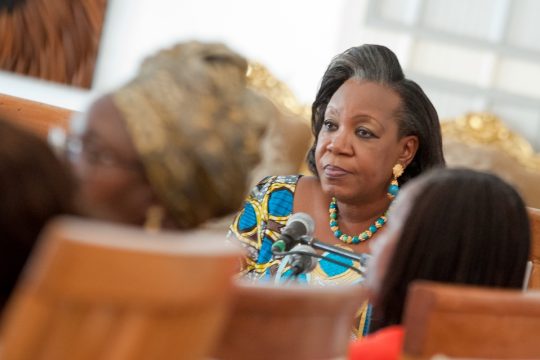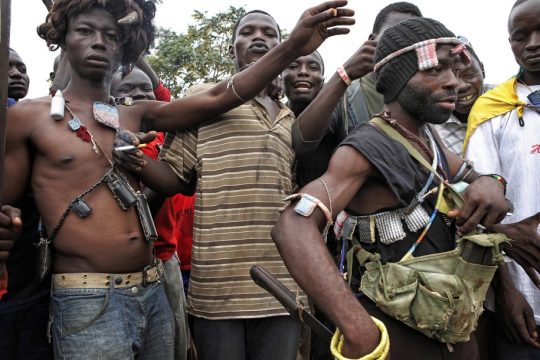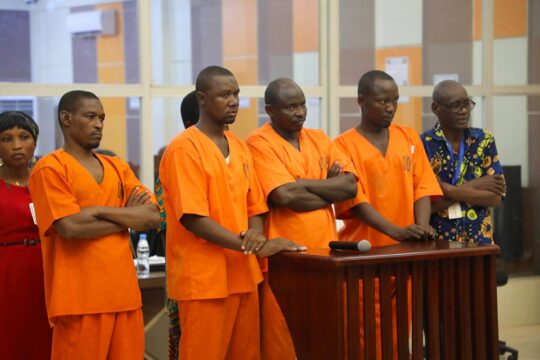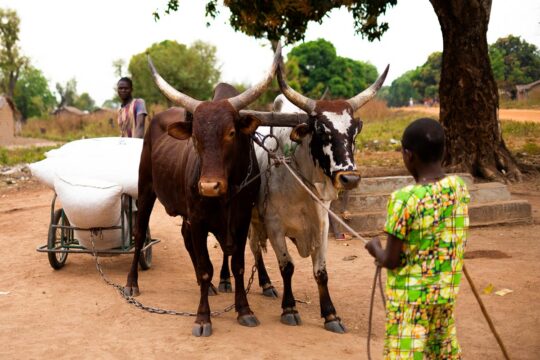Last weeks witnessed more of the same in Africa : A failed coup d’Etat in Burundi, the massive violation of the seventh cease-fire in South-Sudan, and a gloomy peace treaty signing ceremony in Bamako in the absence of the Tuaregs, the main party to the Malian conflict. That this same week started by the adoption of a landmark roadmap to peace and reconciliation in the Central African Republic went totally unnoticed. Not a single foreign Head of State or government found time in their busy schedule to travel to Bangui to congratulate the nationwide delegates that had managed to overcome their differences and agree on the way forward after debating day and night for seven days in a row. The few journalists who covered the event indulged in skepticism and focused on the demonstrations of young fighters expressing their frustration by burning tires in the streets of Bangui - which were interpreted as a sign of imminent failure of the peace process. As the somber predictions of journalists did not materialize, they left the sleepy Central African capital and rushed to more entertaining conflict theatres.
basic ingredients of peace
But skeptics are right: sustainable peace was not achieved through the Bangui forum. Peace is actually never achieved by decree. As defined by the International Red Cross and Red Crescent movement, “ lasting peace is not only the absence of war, but a dynamic process of cooperation among all States and peoples, cooperation founded on respect for freedom, independence, national sovereignty, equality, human rights, as well as on a fair and equitable distribution of resources to meet the needs of peoples”. That is a long way to go for the people of the Central African Republic who never enjoyed any of these rather basic ingredients of peace.
Had critics of the Bangui forum taken a step back though, they may have noticed that after centuries of colonial and indigenous autocratic, kleptomaniac and brutal rule and less than 18 month after mass-murder and random looting against civilians was committed by militias, a reasonable, comprehensive and consensual agreement on a roadmap for the pacification of the country was concluded in less than a week. How does that compare to other peace processes in Africa entering their second or third decade? It is remarkable not only in terms of timing, but also in terms of inclusivity: Over 600 delegates representing every ethnic community of the nation, every rural province, every neighborhood of Bangui, diaspora from the four corners of the world, Christian and Muslims clerics, youth associations, women’s guild and handicapped persons groups, all political parties, the remnant of police and armed forces, and all ten armed groups who ravaged the country. Even those militias who vowed to boycott the forum sent delegates to Bangui in haste when they noticed that history was in motion. And not a gunshot was heard in Bangui during the whole forum, which doesn’t go without saying given the Mad Max like nature of the conflict. Of course debates were chaotic, but unlike intimate negotiations held between warlords and governments, who could deny that the Bangui forum did represent the voice of the people ? Would a smaller format have allowed the people, who outnumbered representatives of militias and politicians, to demand that the whole truth be told, that the constitution be revised, and that elections be held only when conditions for a free and fair process will be met? Would a closed door negotiation between the arrogant commanders of the armed groups and the weak transitional government have allowed to reject their demands for impunity and mandatory quotas in the armed forces ?
the international community
Skepticism is healthy, and pressure must be maintained on Central Africans leaders who are the bearers of a history of broken promises. But if the simple and efficient action plan laid out in the “Republican Pact” of May 11th, 2015 does not receive a massive backing from the international community, the momentum for peace will be rapidly lost. People need to see that they are being registered for voting. Muslims need to be enlisted for obtaining their Central African Republic identity documents. Fighters need to be called for a selection process which will lead them to reintegrate military or civilian life – and rest assured that the international forces will guarantee their security once they have given up their weapons . Victims must be convinced that they will be able to pursue the catharsis initiated by the Bangui forum through a truth and reconciliation process that will reach every neighborhood of Bangui and every village of the province. And finally if Central Africans are ready to forgive, they made it clear that they do not want to see their executioners get away with their crimes as so many did before them.
The Central African Republic has everything to succeed: a vast territory, a small and young population, a single language, a fertile and resources rich land. With good governance the country could be back on its feet and prosperous within a decade. But above all, there is an overwhelming willingness to break away from the cycle of dictatorship and war and move on. There aren’t that many conflicts in Africa where good peacemaking could actually produce the dynamic process of lasting peace. It is not without a risk, but peace – like war - is a risky business. And the international community’s capacity to achieve anything through the use of force alone has not been very convincing off late. So why not give Bangui a chance ?







